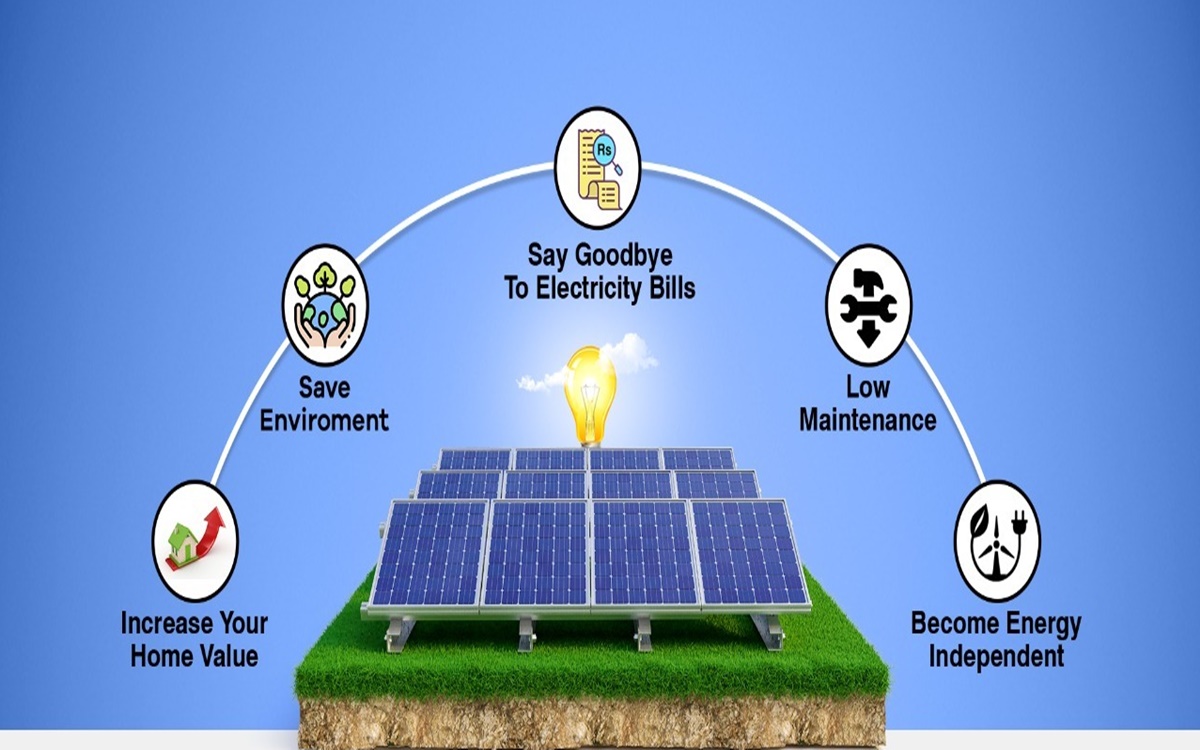The Benefits of Solar Energy
Solar energy is a renewable and sustainable source of power that harnesses the energy from the sun and converts it into usable electricity. In recent years, solar energy has gained significant popularity as an alternative to traditional fossil fuels. This article explores the numerous benefits of solar energy and why it is a viable solution for a greener future.
Environmental Advantages
Solar energy is a clean and green source of power that produces no harmful emissions or pollutants. Unlike fossil fuels, solar energy does not contribute to air pollution, acid rain, or greenhouse gas emissions. By utilizing solar power, we can reduce our dependence on non-renewable energy sources and combat climate change.
Cost Savings
Installing solar panels may require an initial investment, but in the long run, it can lead to substantial cost savings. Solar energy can significantly reduce or even eliminate monthly electricity bills, depending on the size of the solar system and the energy consumption of the property. Additionally, some governments and utility companies offer incentives, such as tax credits or feed-in tariffs, to encourage the adoption of solar energy.
Energy Independence
One of the key advantages of solar energy is the ability to generate electricity on-site. By installing solar panels, individuals and businesses can become less reliant on the power grid and reduce their vulnerability to power outages or fluctuations in energy prices. Solar energy empowers individuals to take control of their energy production and consumption.
Job Creation
The solar energy industry has experienced significant growth in recent years, leading to the creation of numerous job opportunities. As the demand for solar installations increases, skilled workers are needed for the manufacturing, installation, and maintenance of solar panels. By investing in solar energy, we can stimulate economic growth and support job creation in the renewable energy sector.
Longevity and Durability
Solar panels are designed to be durable and require minimal maintenance. Most solar panel manufacturers offer warranties ranging from 20 to 25 years, ensuring the longevity of the system. With proper care, solar panels can continue to generate electricity for several decades, making them a reliable and cost-effective energy solution.

Solar energy offers a multitude of benefits, ranging from environmental advantages to cost savings and energy independence. By harnessing the power of the sun, we can reduce our carbon footprint, save money on electricity bills, and contribute to a sustainable future. Investing in solar energy not only benefits individuals and businesses but also creates job opportunities and drives economic growth. Embracing solar energy is a crucial step towards a cleaner and greener planet.
Frequently Asked Questions about Solar Energy
1. What are the benefits of solar energy?
The benefits of solar energy include:
Reduced electricity bills
Renewable and sustainable energy source
Lower carbon footprint
Increased energy independence
Job creation in the renewable energy sector
2. How does solar energy help the environment?
Solar energy helps the environment by reducing greenhouse gas emissions, air pollution, and water usage associated with traditional energy sources.
3. Can solar energy save me money?
Yes, solar energy can save you money in the long run by reducing your electricity bills and potentially allowing you to sell excess energy back to the grid.
4. Are there any government incentives for installing solar panels?
Yes, many governments offer incentives such as tax credits, grants, and rebates to encourage the adoption of solar energy systems.
5. How long do solar panels last?
Solar panels typically have a lifespan of 25 to 30 years, but they can continue to produce electricity beyond that period with reduced efficiency.
6. Do solar panels work on cloudy days?
Yes, solar panels still generate electricity on cloudy days, although their efficiency may be slightly reduced compared to sunny days.
7. Can I use solar energy during a power outage?
It depends on your solar energy system setup. If you have a grid-tied system without battery storage, you won’t have power during an outage. However, if you have a battery backup system, you can still use solar energy during a power outage.
8. Are there any maintenance requirements for solar panels?
Solar panels generally require minimal maintenance. Regular cleaning to remove dirt and debris is recommended, and occasional inspections to ensure optimal performance are advised.
9. Can I install solar panels on any type of roof?
Solar panels can be installed on most types of roofs, including asphalt shingle, metal, tile, and flat roofs. However, the suitability may vary depending on factors such as roof orientation, shading, and structural integrity.
10. Is solar energy a reliable source of power?
Yes, solar energy is a reliable source of power. With proper system design and installation, solar panels can consistently generate electricity for your home or business.




